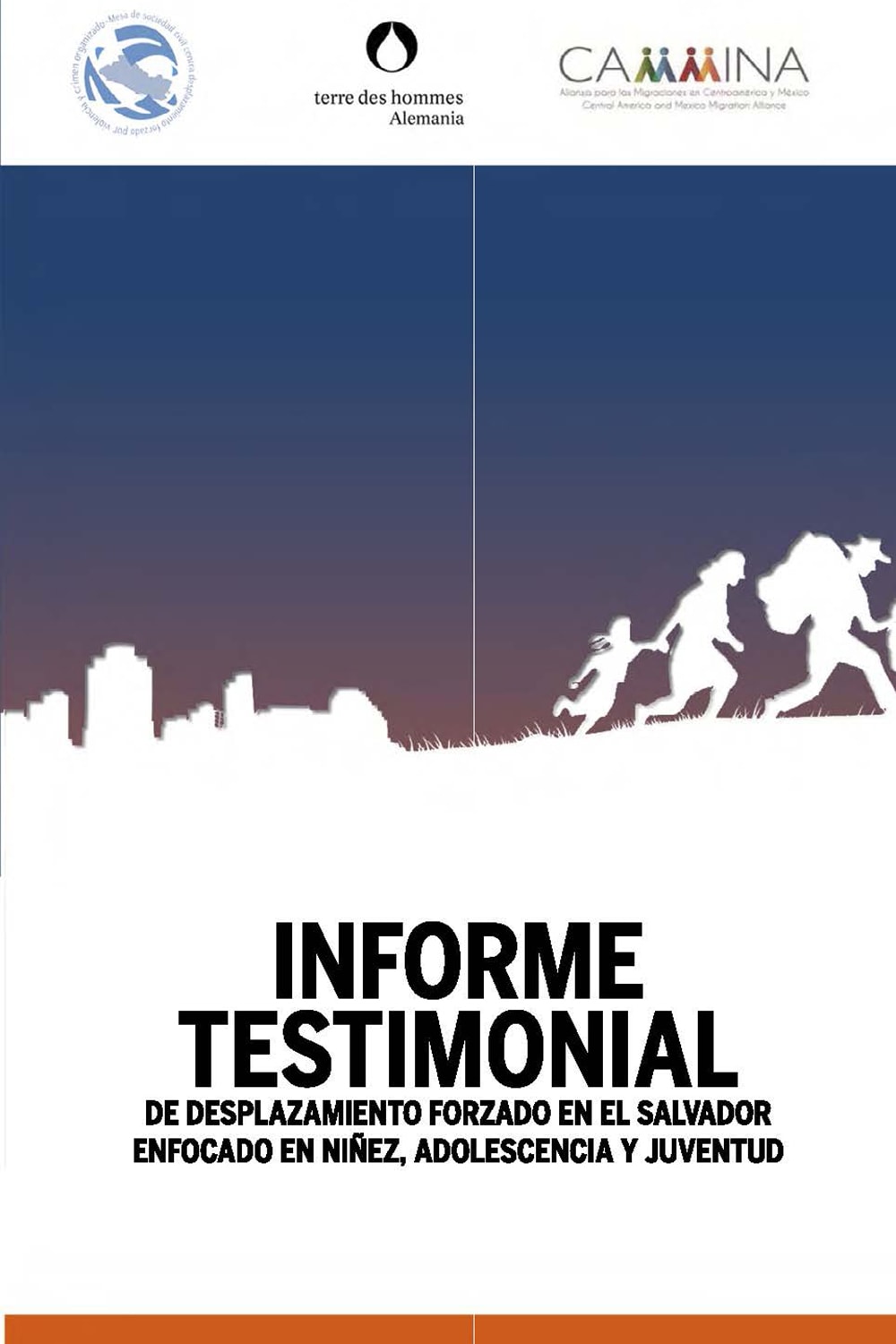
Testimonial report of forced displacement in El Salvador focused on children, adolescents and youth 2014-2015)


Families living in areas strongly affected by gang activity experience multiple violations of their rights and, faced with the threat of losing their lives or that of their family members, they are forced to flee their residences, their communities, or even their country. This implies the deterioration of the living conditions, the home’s abandonment, the uprooting, the breakdown of their family and social environment, school dropouts, unemployment, and isolation, among other situations of accentuated vulnerability. The organization Refugees International has referred to data from the Norwegian Council for Refugees (CNR) that report that, in 2014, there were 288,000 internally displaced people in El Salvador. There is no recognition by the Salvadoran State of internally displaced persons due to generalized violence. Thus, there are no open cases of internally displaced persons or sub-registers in state instances where victims come to request help.
Given the lack of national policies and mechanisms to care for victims of forced displacement, seven of the 13 social organizations that are members of the Civil Society Working Group against Forced Displacement due to Violence and Organized Crime reported assistance to 146 specific cases of forced displacement between August 2014 to December 2015, monitoring a total of 623 victims. Such an effort entails an arduous task since the family groups that are forcibly displaced choose to do so invisibly, both out of fear and because they consider that it is safer for them that the situation they live in is not known because this could facilitate for their trackers knowing their movements or location.
These first reports show only part of the current situation on forced displacement in El Salvador; their numbers do not reflect the real scope of the populations affected by this phenomenon. Each forcibly displaced person has suffered a series of violations and traumas that must be taken into account to address the problem of violence from a comprehensive perspective, starting from the victims’ rights and needs. The main objective of this testimonial report is to make visible the situation experienced by families of children, adolescents, and youth (NNAJ from now on) in the context of forced displacement due to generalized violence and organized crime in the Metropolitan Area of San Salvador (AMSS from now on).
The report is written descriptively, and a series of verbatim quotes from the testimonies are used to visualize better the experience of surviving the different manifestations of violence that affect internally displaced families. First, the report presents in a general way the context of current violence faced by children, adolescents, and youth in regions where organized crime has widespread control in all areas of their families’ lives. Likewise, it shows the different expressions of extreme violence to which the families of children, adolescents, and youth are exposed, which force them to flee their communities. Later, the report presents the topic of family disintegration as a consequence of forced displacement. This part explains the different ways in which the families of children, adolescents, and youth break up to avoid irreparable damage to their lives and how a violent act affects both the family group and each of its members.



Portal de monitoreo a vulneraciones de derechos humanos
El equipo de investigación de Cristosal brinda monitoreo constante a las violaciones en materia de derechos humanos, para brindar información oportuna y certera sobre las causas y efectos de estas sobre las poblaciones vulneradas. Alimentado por datos provenientes de instituciones Estatales, de sociedad civil y de cooperación internacional, sus publicaciones fortalecen la labor de defensa y promoción de los derechos humanos en el Norte de Centroamérica.